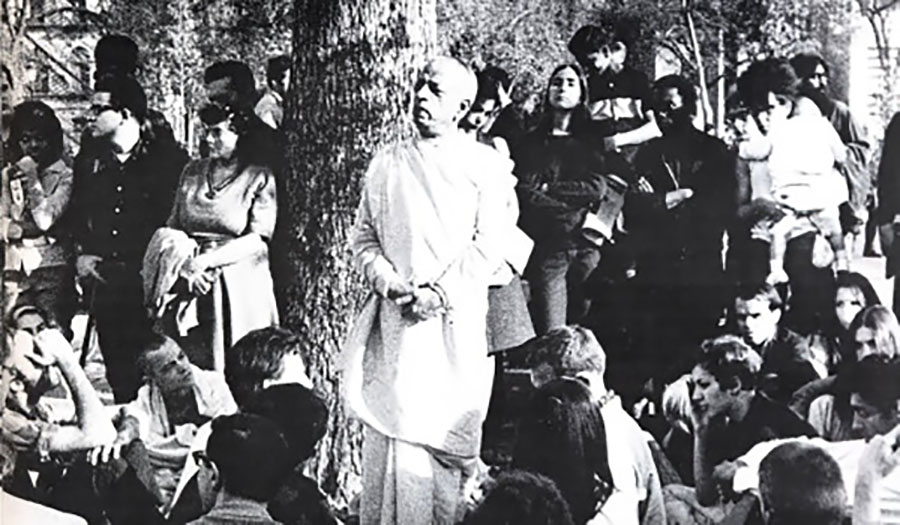ISKCON 50 Meditations: December 2, 2016
By Satsvarupa dasa Goswami | Дек 02, 2016

Srila Prabhupada’s Ecumenical Message
Even in the beginning, in the friendly and humble spirit of a Vaisnava, Srila Prabhupada encouraged everyone he met to chant the holy names of God, and to practice the essence of religion as contained in all scriptures: “Obey God’s laws.” Prabhupada’s uncompromising presentation of God consciousness may have disturbed some religionists, but if one carefully thinks about it, Prabhupada was only saying what was also said by the founders of the great religions. Those who wished to water down or change basic religious principles may have been disturbed by Srila Prabhupada’s insistence, but not those who were true seekers on the path of God consciousness.
Prabhupada once humorously compared himself to a karate expert who knew how to push on the weak spot of the opponent. He was not a belligerent preacher looking for a fight, but he did see major weaknesses or hypocrisy in many who claimed to be following religion, and so he would always press on those points to bring out the falsity.
Since he had traveled to the West, which was at least nominally Christian, he was prepared to regularly confront Christians as to why they did not obey the commandment, “Thou shalt not kill.” Srila Prabhupada saw this as a preliminary teaching and therefore it was a great defect if a Christian follower neglected it. By pointing to their failure in this one commandment, Prabhupada would dismantle their whole position.
The “do-not-kill” commandment has been interpreted by theologians to mean, “Thou shalt not murder.” In other words, they say it applies to human beings but not the killing of animals. Srila Prabhupada insisted, however, that in the original language of the Bible, the word is “kill” and it should certainly apply to animals.
The fact that an animal is a less intelligent creature should not make him a candidate for killing by the human being, who should be his protector. Srila Prabhupada’s preaching points out a major embarrassment and a major lack in these world religions which don’t practice ahimsa towards animals. We should see Prabhupada’s confrontation in that way and not think of it as Hinduism, or think that he was just finding a way to trip up a religionist in order to defeat him in debate. Prabhupada was trying to be helpful.
The fact is, Prabhupada was a universal teacher and the philosophy he represented is one that embraces love of God wherever it appears. Prabhupada would often mention the Бхагаватам verse sa vai pumsam paro dharmo yato bhaktir adhoksaje. In giving the purport of that verse, Prabhupada would say that real religion is not to be a member of a particular sect such as Hinduism, Christianity, Islam or Buddhism. But real religion is бхакти, or love of God. That is the highest spiritual truth—uninterrupted, unmotivated devotional service. Srila Prabhupada wanted to deepen the ecumenical exchange. He couldn’t pretend to agree with the discrepancies of those who claim to be religionists, but who did not obey God’s commandment.















